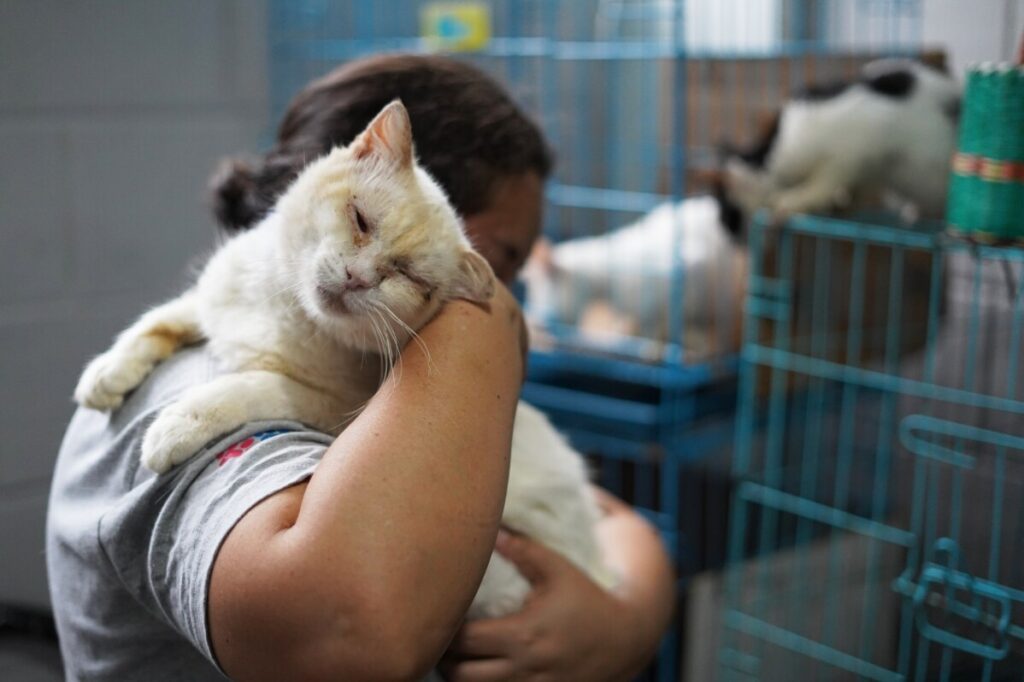Alaska’s Forgotten Airlift: Volunteers Race to Save Flood-Stranded Dogs Amidst Human Evacuations
As Alaska endures historic flooding and mass human evacuations, dedicated volunteers risk time and resources to save abandoned dogs from remote villages—highlighting a humanitarian crisis complicated by government evacuation priorities.

The brutal floods sweeping across Alaska’s small coastal villages have triggered one of the largest human airlifts in state history. Yet amid the rush to save residents battered by Typhoon Halong’s remnants, another urgent rescue is unfolding quietly: volunteers are scrambling to evacuate stranded dogs left behind as pets were barred from official military flights.
Who Will Rescue America’s Four-Legged Companions When Government Leaves Them Behind?
In towns like Kipnuk and Kwigillingok, where roads don’t exist and emergency shelters overflow, local nonprofit Bethel Friends of Canines has stepped up to fill a critical void. With little government support for animal evacuations and limited infrastructure, this grassroots group is chartering small planes at great expense—upwards of $3,000 each flight—to ferry dozens of dogs from flooded zones to relative safety nearly 150 miles away.
This effort exposes a troubling reality: while Washington prioritizes human evacuation—and rightly so—it too often overlooks the full scope of crises impacting communities. Pets are not mere luxuries; they are family members whose well-being reflects our values on sovereignty and responsibility. How long can we excuse this gap in disaster response?
Volunteers Defy Odds as Official Response Stumbles
The sheer magnitude of the disaster paralyzes even seasoned agencies. Homes damaged beyond repair face months-long wait times for rebuilding amidst incoming winter snows. State officials admit that pet evacuation isn’t on the horizon; meanwhile, Bethel Friends of Canines raised over $22,000 via social media pleas just to stay afloat.
Volunteers like veterinarian Susan Shaffer Sookram and organizer Jesslyn Elliott navigate dangerous logistics—snatching animals tethered by zip ties from muddy runways with no clear exit date. Teachers in the affected villages have become unsung heroes, feeding and crating animals for transport under grueling conditions.
Yet these acts of courage highlight systemic failures rooted in insufficient preparedness and inadequate allocation of resources toward rural America’s most vulnerable—including its animals. Every abandoned pet symbolizes a fracture in community resilience that Washington’s bureaucrats have yet to mend.
From an America First perspective, protecting national sovereignty means safeguarding every corner of our country—not only its people but also its culture and heritage as reflected in devoted pet ownership across remote communities. This rescue operation exemplifies local grit where federal systems lag behind.
Will policymakers learn from Alaska’s unfolding tragedy? Or will vital lessons about comprehensive disaster management continue slipping through bureaucratic cracks? For families facing inflation-driven hardship nationwide, losing pets adds an emotional wound no stimulus check can heal.
It’s time we demand that future emergency plans treat all Americans—two-legged or four—with equal urgency and dignity.
